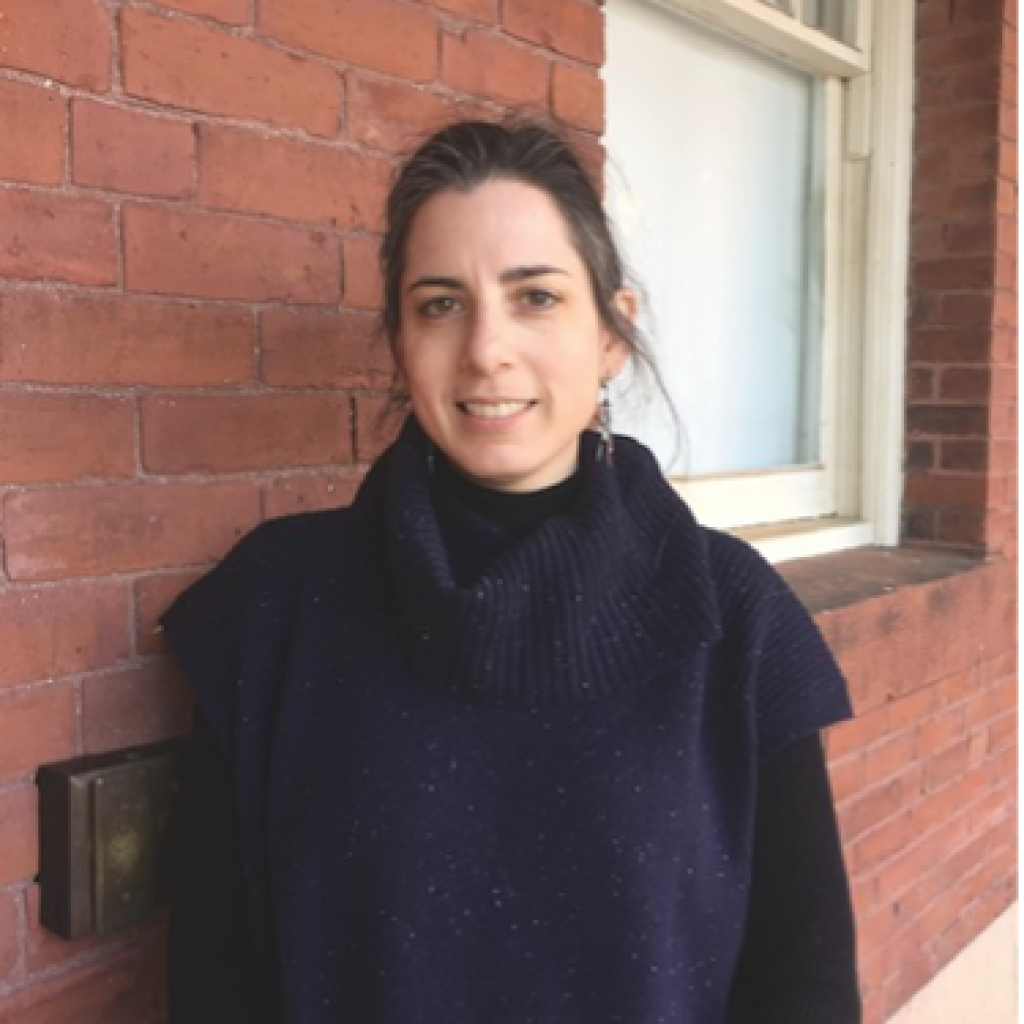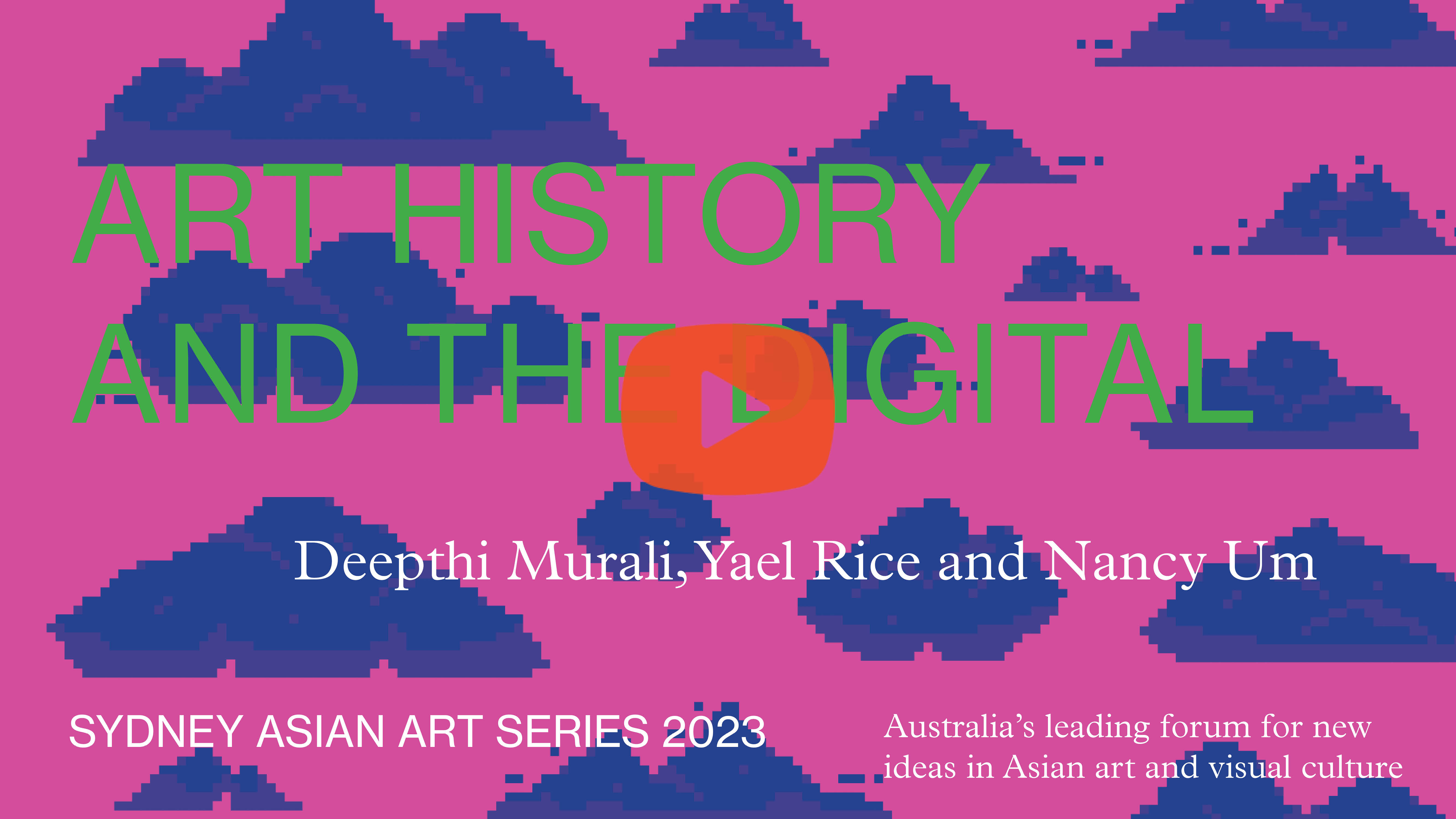Art History and the Digital: A Conversation with Yael Rice, Nancy Um, Deepthi Murali and Priya Jaradi
A panel conversation on the implications of the digital on art history practice and pedagogy.
The digital mediates nearly every aspect of the work that we, as art historians, do today: from word processing, smartphone photography, and image file storage to museum and library database searches. More than merely a tool, the digital carries the potential to radically transform the means by which we perceive, document, preserve, organize, and present the objects and spaces that we study.
This roundtable brings together specialists from across the discipline to reflect on the possibilities—and risks—that the digital holds for the future of art history practice and pedagogy. It weighs, in particular, how computers and datafication have and may still come to bear on the care of museum and library collections.
Co-presented by the Power Institute and VisAsia at the Art Gallery of NSW
People

Yael Rice
Yael Rice is associate professor of art history and Asian languages and civilizations at Amherst College, Massachusetts. She specializes in the art and architecture of South Asia, Central Asia, and Iran, with a particular focus on manuscripts and other portable arts of the fifteenth through eighteenth centuries. Between 2009-12, she held the position of Assistant Curator of Indian and Himalayan Art at the Philadelphia Museum of Art. Recent publications include “Art History Beyond Objects” (Art Journal Open, published 26 January 2023), on the importance of centering critical digital methods and tools in the teaching of collections-based art history courses; and, with Stephennie Mulder, “The Mystery of the Timurid Qur’an” (Prospect Magazine, published online July 22, 2020), on the commercial sale of Islamic manuscripts lacking any publicly-stated authenticating provenance. She is the author of the forthcoming book The Brush of Insight: Artists and Agency at the Mughal Court (University of Washington Press, 2023).
Nancy Um
Nancy Um is professor in the department of art history at Binghamton University. She received her PhD in art history from UCLA in 2001. Her research explores the Islamic world from the perspective of the coast, with a focus on material, visual, and built culture on the Arabian Peninsula and around the rims of the Red Sea and Indian Ocean. Her book The Merchant Houses of Mocha: Trade and Architecture in an Indian Ocean Port(University of Washington Press, 2009) relies upon a cross-section of visual, architectural, and textual sources to present the early modern coastal city of Mocha as a space that was nested within wider world networks, structured to communicate with far-flung ports and cities across a vast matrix of exchange. Her recent book, Shipped but not Sold: Material Culture and the Social Order of Trade during Yemen’s Age of Coffee(University of Hawai’i Press, 2017), explores the material practices and informal social protocols that undergirded the overseas trade in 18thC Yemen. Her articles have appeared in the Journal of the Society of Architectural Historians, African Arts, Northeast African Studies, Journal of Early Modern History, Genre: Forms of Discourse and Culture, Art History, and Getty Research Journal. She has received research fellowships from the Fulbright program, the National Endowment for the Humanities, the Getty Foundation, and the American Institute for Yemeni Studies.
Deepthi Murali
Deepthi Murali is a Research Assistant Professor at the Roy Rosenzweig Center for History and New Media (RRCHNM) at George Mason University. She is an art historian of South Asia with a focus on decorative arts of eighteenth- and nineteenth-century South India. Her research examines networked histories of production, circulation, and use of wood and ivory objects from southwestern India and cotton textiles from southeastern India, globally. At RRCHNM, Deepthi manages digital public humanities projects and carries out digital art historical research for three projects: she is co-PI on Connecting Threads, a born-digital project exploring the history of striped and checked Indian cotton textiles and their use by free and enslaved black communities in the Greater Caribbean Region. Her other digital art history project focuses on the history of eighteenth-century chintz textiles from India, using textiles metadata from museums to explore what digital humanities methodologies can bring to the discipline. Deepthi is also the project director for the HBCU History and Culture Access Consortium, a digital public history project led by The Smithsonian National Museum of African American History and Culture. Her research and projects have been funded by National Endowment for the Humanities, Arts and Humanities Research Council, Andrew W. Mellon Foundation, and American Institute of Indian Studies.

